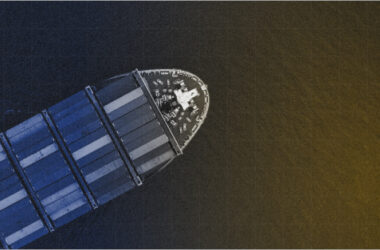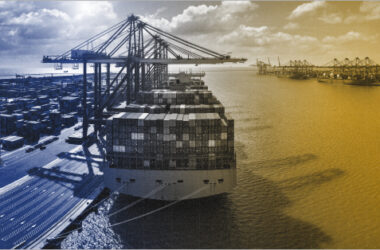Navigating the vast and unpredictable oceans has been a quintessential part of human history, facilitating trade, exploration, and cultural exchange. However, alongside its allure lies a multitude of risks and perils that have challenged seafarers for centuries. In the world of Marine Insurance, understanding and mitigating these hazards is paramount to safeguarding the interests of shipowners, cargo owners, and insurers alike.
Welcome to our enlightening article on “The Perils of the Sea in Marine Insurance.” Here, we would look into the various dangers that maritime ventures face and the measures undertaken to shield against potential losses. As we explore the perils that loom on the horizon, we shed light on the critical role Marine Insurance plays in safeguarding maritime commerce, and how it acts as a lighthouse guiding ships through the darkest storms.
In this article, we analyze the various types of risks that fall under the umbrella of “perils of the sea” in Marine Insurance. By understanding the intricacies of these risks, shipowners and cargo owners can make informed decisions about their insurance coverage, ensuring they are adequately protected against the uncertainties of maritime trade.
So, whether you are a seasoned maritime professional seeking deeper insights into Marine Insurance or an enthusiast eager to unravel the mysteries of the high seas, this article promises to be an illuminating guide. Join us as we set sail to explore “The Perils of the Sea in Marine Insurance” and chart a course towards a safer and more secure maritime world.
Here we go!
What are the Perils of Sea in Marine Insurance?
In Marine Insurance, the term “Perils of the Sea” refers to a specific category of risks and hazards that ships and cargo face during maritime journeys. Broadly speaking, ‘peril of the sea’ covers damages to the ship during the voyage by the Acts of God. It includes those accidents or casualties which do not happen due to the free will of a human being. These perils are typically considered unavoidable and unpredictable, arising from the natural elements and conditions at sea.
Marine Insurance Policies often include coverage for these perils to protect shipowners and cargo owners from financial losses resulting from maritime mishaps. Further, ‘perils of the sea’ in Marine Insurance comprise losses only to goods on board. It covers the loss of goods on board that is damaged due to some irresistible force or natural cause. Also, the ‘perils of the sea’ won’t cover every accident or casualty that arises in the sea.
Some common perils of the sea include:
- Fire and Explosion: Fires can break out on ships due to various reasons, such as electrical faults, fuel leakages, or cargo mismanagement. Such incidents can lead to severe damage and endanger the crew’s lives. Though the policy does not cover every type of fire, it does cover damage caused by smoke or heat of fire, damage caused by water used to put out or prevent the spread of fire, or fire caused by lightning, spontaneous combustion, explosion, negligence of the master or crew, and so on. However, if the damage is caused by the insured’s willful wrongdoing or the fire occurs due to the inherent vice or nature of the subject matter insured, the insurer is not liable.
- Storms and Tempests: Violent storms, hurricanes, and cyclones are among the most significant perils ships encounter at sea. Powerful winds and turbulent seas pose a threat to the vessel’s structure, navigation, and safety, potentially leading to damages or losses.
- Piracy and Armed Attacks: Maritime piracy remains a peril, particularly in certain regions. Acts of piracy can result in the theft of cargo, ship hijacking, crew abduction, and ransom demands, causing substantial losses for shipowners and cargo owners.
- Jettison: In extreme situations, when a ship is in danger of sinking or facing significant damage, intentional jettisoning of cargo may be necessary to preserve the vessel and crew’s safety. This action results in the loss of the jettisoned cargo. If the goods or anything else has been thrown overboard by mistake or on purpose, it is not considered jettison. It should be noted, however, that the policy does not cover cargo jettison due to its inherent vice. For example, the disposal of bad fruits caused by a delay or hemp sent in an inappropriate state that has gotten dangerously hot is not covered.
- Collision: Collisions with other vessels, icebergs, or submerged objects are a constant risk during sea voyages. These accidents can cause significant damage to the ship’s hull, cargo, or both, leading to financial losses for shipowners and cargo owners.
- Stranding: Running aground or getting stuck in shallow waters can result in hull damage, cargo losses, and potential environmental hazards.
- Sinking and Capsizing: The risk of a ship sinking or capsizing due to adverse weather, heavy cargo shifting, or instability can lead to total losses and significant financial repercussions.
- General Average: In cases of extreme emergencies, where the ship and its cargo face a common peril, the concept of general average may come into play. It involves a proportional contribution from all parties involved to cover the losses incurred in protecting the common interest.
Risks not covered under “perils of the sea”
Some common risks not covered under “perils of the sea” in Marine Insurance include:
- War and Warlike Operations: Losses or damages resulting from war, civil war, rebellion, revolution, or any hostile actions between nations are typically excluded from standard Marine Insurance Policies.
- Strikes, Riots, and Civil Commotions: Damages caused by strikes, riots, civil disturbances, or labor disputes are generally not covered under “perils of the sea.”
- Nuclear or Radioactive Contamination: Losses or damages resulting from nuclear reactions, nuclear radiation, or radioactive contamination are usually excluded.
- Willful Misconduct or Negligence: Losses due to willful misconduct or gross negligence of the insured or their representatives may not be covered.
- Delay, Loss of Market, or Loss of Earnings: Consequential losses, such as delays in transit, loss of market, or loss of earnings, are typically excluded from “perils of the sea” coverage.
- Inadequate Packing: Losses caused by inadequate or improper packing of the cargo may not be covered.
- Inherent Vice: Damages resulting from the inherent nature or quality of the cargo, which causes it to deteriorate over time, may be excluded.
- Other exclusions-
- Breakage of goods
- Wear and Tear
- Loss by rats
- Springing a leak
- Death of animals onboard due to natural perils
The footnote:
In our journey above, we tried to shed light on the intricate web of risks that surround maritime ventures. From treacherous storms and navigational hazards to the ever-present threat of piracy and human errors, the dangers faced by seafarers and their valuable cargo remain as formidable as ever. As we navigated the complexities of Marine Insurance, we discovered its pivotal role in transferring risks from shipowners and cargo owners to insurers.
In doing so, Marine Insurance serves as a beacon of stability and resilience, instilling confidence in the hearts of those whose livelihoods and fortunes rely on the unpredictable seas. Moreover, our exploration has underscored the importance of making informed decisions about Marine Insurance coverage. Understanding the specific risks that fall under the purview of “perils of the sea” empowers maritime stakeholders to tailor their policies to suit their unique needs, securing their assets and investments against the uncertainties that lie ahead.
As we bring our maritime odyssey to a close, let us carry forth the knowledge gained here, honoring the legacy of centuries of seafaring courage while embracing the advancements of modern Marine Insurance. May this understanding serve as a guiding light, ensuring safer voyages and greater prosperity on the seas. With each new voyage, may the indomitable spirit of exploration and enterprise be matched by the fortitude of Marine Insurance, standing as an unwavering guardian in the face of the perils that await on the ever-changing waters of the seas and oceans.
Read more about Single Transit Policy
Read more about Marine Open Policy
Read more about Sales Turnover Policy







